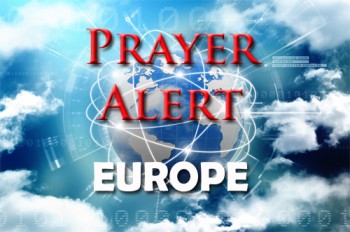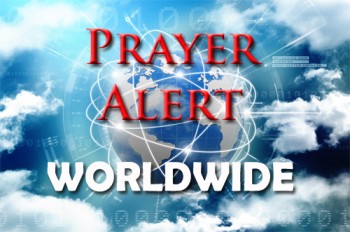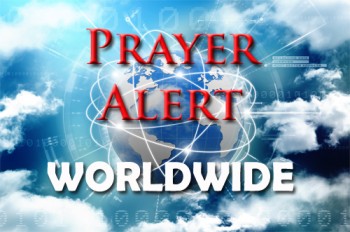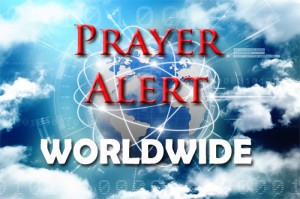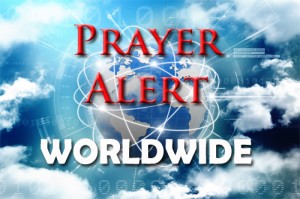Displaying items by tag: instability
Iceland: new volcano fissures open
Lava flowed from a volcano on the Reykjanes peninsula on 28 March, prompting the evacuation of hundreds of tourists. Then on 5 April a new 100- to 500-metre fissure opened half a mile north of the original crevice. Drone footage shows lava rivers feeding a larger lava flow pouring into a nearby valley. After weeks of seismic activity and over 50,000 tremors, the volcanic eruptions started near Fagradalsfjall mountain which has been dormant for 6,000 years. The current fissures are the first experienced on the peninsula in 800 years. In the first days a 600- to 700-metre-long fissure began ejecting lava. Now a cone with two open volcanic vents is ejecting lava at a constant rate of four to five metres every three seconds. The area is mostly uninhabited and 19 miles from Reykjavík, the capital and largest city of Iceland.
Lebanon: worsening crisis
Lebanon has failed again to form a new government. President Michel Aoun wants help from other countries to overcome the deadlock. There is economic despair as political instability drives the currency down. As the currency dips further, the minimum wage sinks below that of third-world countries. It is unbelievable how little people are earning now. They are stuck in a vicious circle, with no end in sight. Each time the currency loses value, prices go up, and people can buy fewer daily essentials. A bottle of milk was 3,000 Lebanese lira, now it’s 8,000. But that same bottle of milk bought with US dollars is less than 50 cents. It becomes ¼ of the price for people with dollars, but the poor people pay over double the price. As the crisis worsens, people have nowhere to put their hope, so they are starting to put their hope in Christ.
Iraq: Iran / US hostility
Many believe the US killing of Qasem Soleimani (plus four senior commanders and an Iraqi militia leader) risks causing Iraq instability. The USA believed the men were organising radical tactics against it, describing the action as ‘a preemptive defensive strike to prevent attacks yet to come’. In retaliation Iran fired missiles towards two air bases housing US troops and coalition forces. It is believed the strikes deliberately missed areas populated by Americans and multiple administration officials. Also, advance warning was given so that troops could take ‘necessary precautions.’ Iraq's prime minister Adil Abdul Mahdi’s government is already shaken by protest movements and relentless Iranian pressure and interference, plus the threat of a resurgent IS. Its future hinges on what happens next between the United States and Iran. Pray for an end to ballistic missile development. See also
Iran, Saudi Arabia, Iraq: instability
Iran’s regional activities have stretched its capacity, its economy is already in difficulty, and while President Trump has said he will renew the sanction waivers one last time, a collapse of the nuclear enrichment agreement would cause severe problems. It is not known who might replace the ailing Supreme Leader, Ayatollah Khamenei, in the near future. In Saudi Arabia Crown Prince Mohammad bin Salman is assuming greater power while preparing to become king. He has liberal policies on economic reforms, and some foresee possible attempts to prevent his coronation. When Kurds voted for independence Iraq experienced political chaos, and challenges remain as they prepare to elect a new parliament in May. Meanwhile Christian villages are being freed from jihadists and the faithfulness of the region’s church is causing Muslims, disillusioned by violence perpetrated in the name of religion, to walk the path of peace and reconciliation.
North Korea: What is the real threat?
An award-winning professor and author of four books on North Korea says that not only is North Korea’s current instability, violent attitude and weaponry, including missiles a threat to Asia, United States, key regions in the Middle East and Africa, but there is also the threat that North Korea’s collapse could unleash a variety of their military systems into the black market for sale to Iran and Syria. He, and others, believe that the two ways to contain this threat are tactical and strategic. A tactical approach would be an increased ballistic missile defence system providing a realistic umbrella against nuclear attack. The strategic way means going after banks and front companies globally where Pyongyang launders the dirty money it uses (much of it gained from military proliferation). It is important to note that when it comes to targeting North Korea’s dirty money there are mafia-like illicit financial networks in Singapore, Malaysia, Africa and China.
